Tragedy behind child prodigy Melissa Wu’s Olympic revival
Melissa Wu is no longer the 13-year-old prodigy who stunned Australia, enduring a tough ride to her incredible bronze medal in Tokyo.
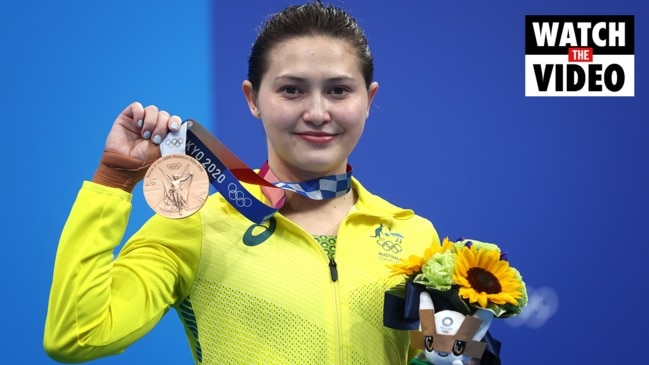
Fifteen years ago, a teenage Melissa Wu introduced herself to Australia by winning silver at the Commonwealth Games in Melbourne.
Just a pint-sized 13-year-old then, she backed up her breakthrough medal with another silver two years later at the 2008 Beijing Games in the women’s synchronised 10m platform.
There was a fifth-placed finish in London in 2012 and a fourth-placed effort at the 2016 Olympics, not to mention gold medals at the 2010 and 2018 Commonwealth Games, as well as more medals at world championships along the way.
But on Thursday the Aussie diver finally received the prize she craved most – an individual medal – on her fourth visit to the Olympics, as she scooped up bronze in her pet 10m platform event.
Times may have changed but Wu’s commitment to the sport hasn’t. If it makes you feel old to learn the baby-faced child prodigy you first met is now 29, imagine how she felt when she lined up on the podium alongside two Chinese tiny tots.
Hongchan Quan, 14, won gold while 15-year-old Yuxi Chen claimed silver. Talk about a changing of the guard.
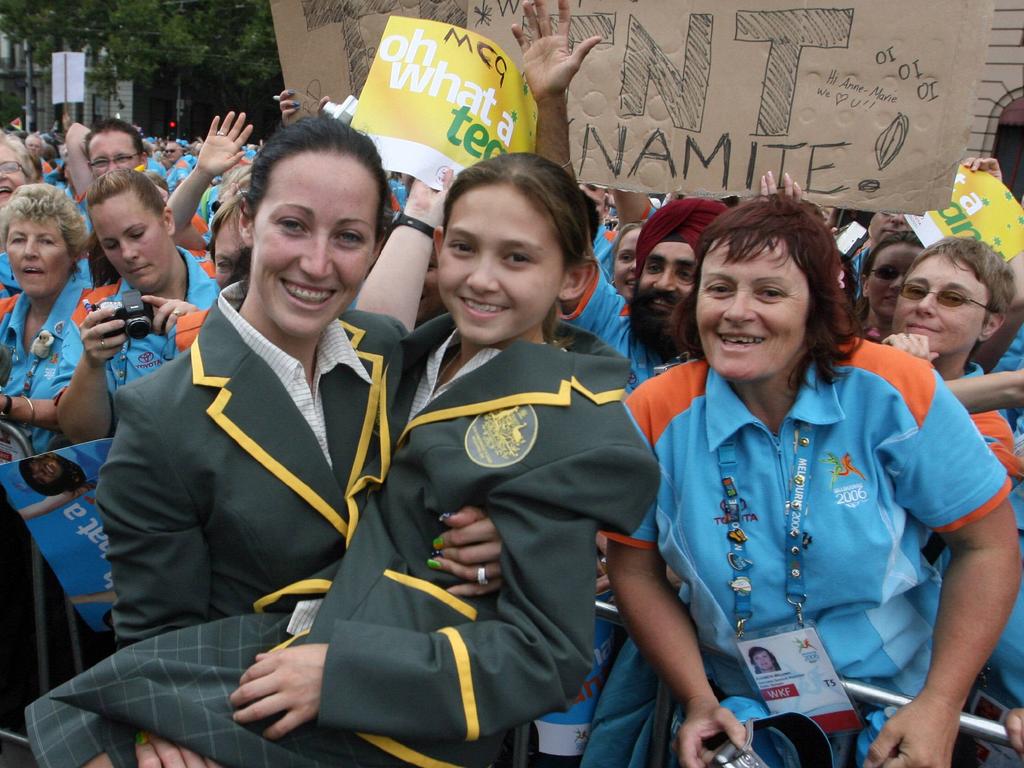
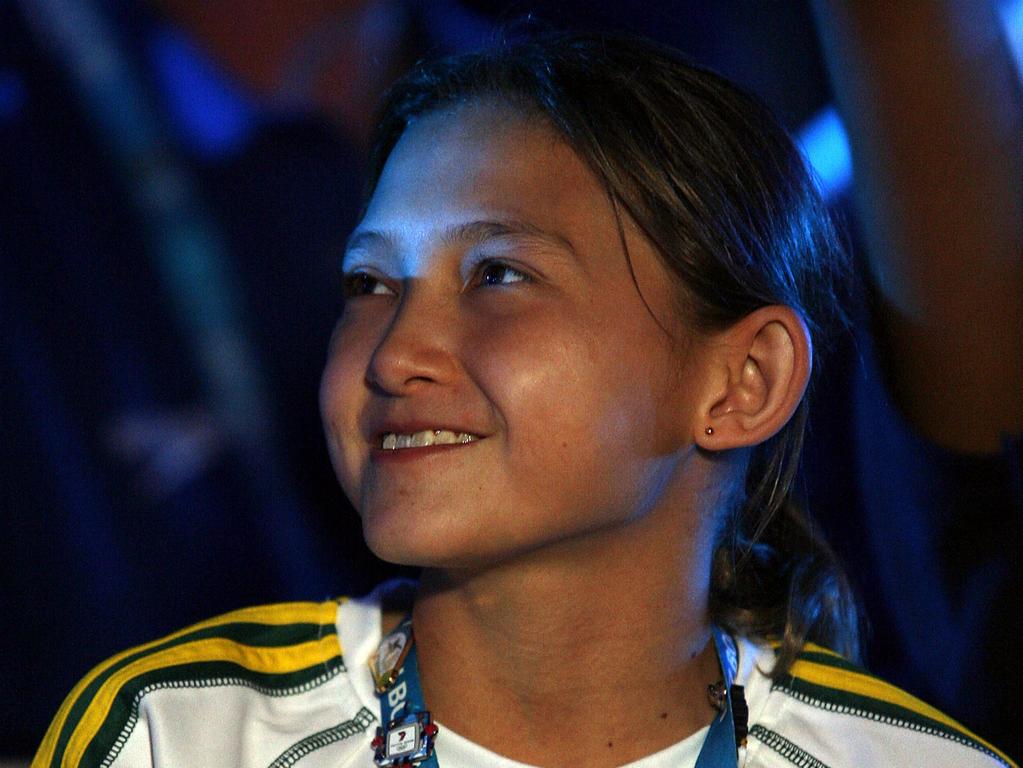
That Wu has remained competitive at the elite level for so long is really quite remarkable. In how many Olympic sports – particularly at an individual level - can someone still be such a genuine medal threat 13 years after their debut?
Wu said her Chinese rivals were “amazing to watch” and while they may have been blessed with the fearlessness of youth, all those extra years the Aussie has spent plunging into the pool helped when it came to the crunch in Tokyo.
“I think experience definitely helps a lot, especially when there’s a bit of pressure applied,” Wu said.
“For me, the experience is not just in physically diving during the competitions, but being able to cope mentally and emotionally in those challenging situations.
“I think that’s the hardest thing, as a diver, when you realise, ‘I’m within a shot (at winning)’, that’s when things can crumble really quickly.
“After all this time it’s been a long time coming but I’m so glad that all my hard work in all the areas I needed to work on has really paid off.”
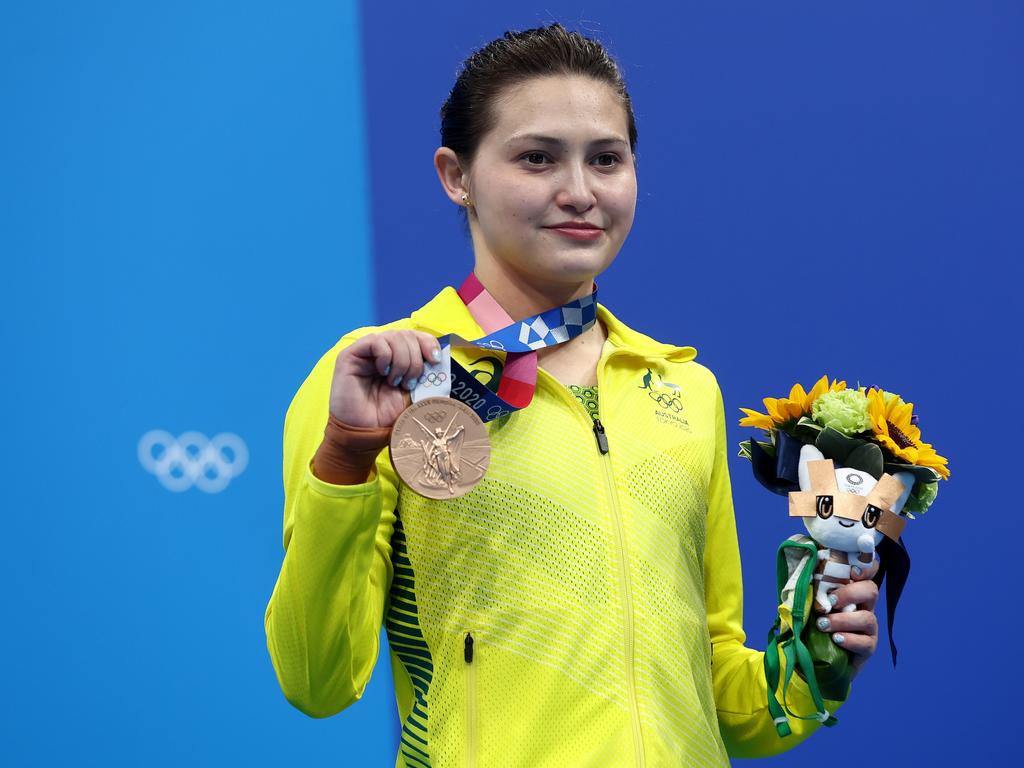
Tragedy behind Wu’s determined rise
In the 15 years since Wu first stepped on the podium at a major international competition there have been plenty of obstacles to overcome that make her Tokyo triumph that much more special.
As recently as last year, dealing with injuries and the uncertainty of a global pandemic that played havoc with Olympians’ mental states, Wu admitted she was struggling and questioned whether she’d ever be able to get back to her best.
The four-time Olympian has spoken openly of her mental health struggles and about the loneliness that comes with competing in a cutthroat environment against other athletes who are fighting for a limited number of spots on a team.
But at the same time, diving was a constant in her life that kept Wu on track. It took on even greater significance when Wu’s sister Kirsten tragically took her own life in 2014.
Wu’s coach thought that would be the end of her diving career and while the Tokyo bronze medallist revealed there have been multiple occasions when she considered giving the sport away, she kept coming back to her one true love.
“The first time (I considered quitting) for me was when my sister passed away in 2014,” Wu said after finishing on the podium in Japan. “That was a huge challenge for me to overcome and it’s something that is continually very challenging for me and my family.
“That was really, really tough for my family. I think it’s something that you never really … you don’t get over it, it’s just that time passes and you just get used to living with it.
“Diving saved me a bit and gave me something to re-focus on and keep going after that.”
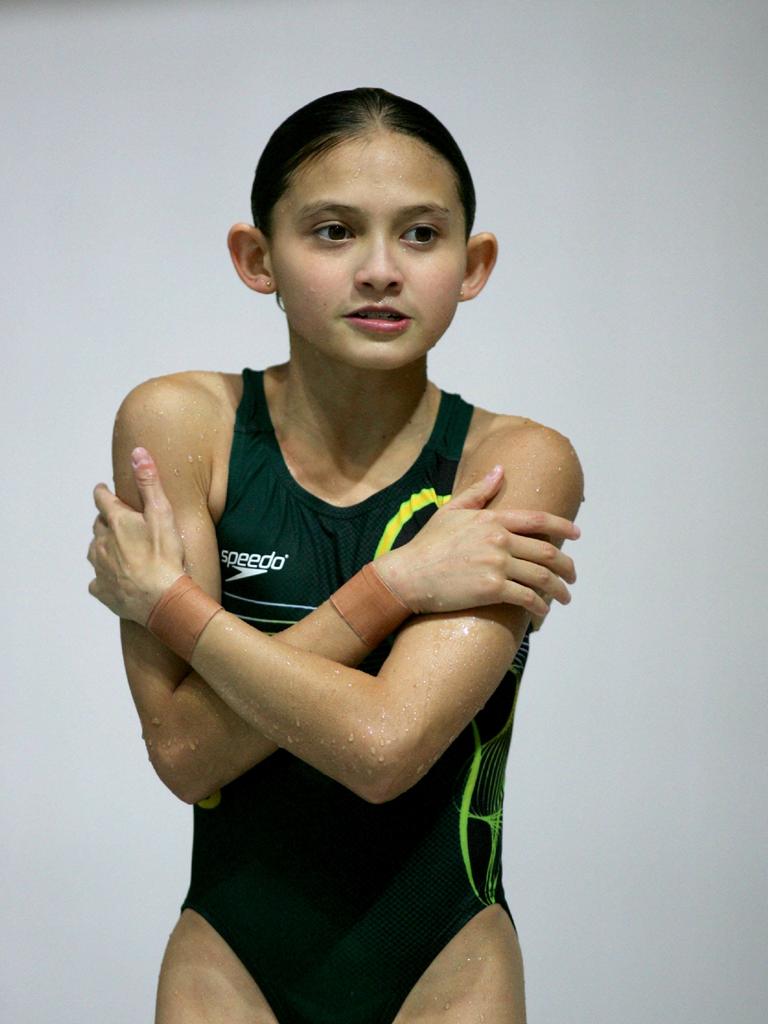
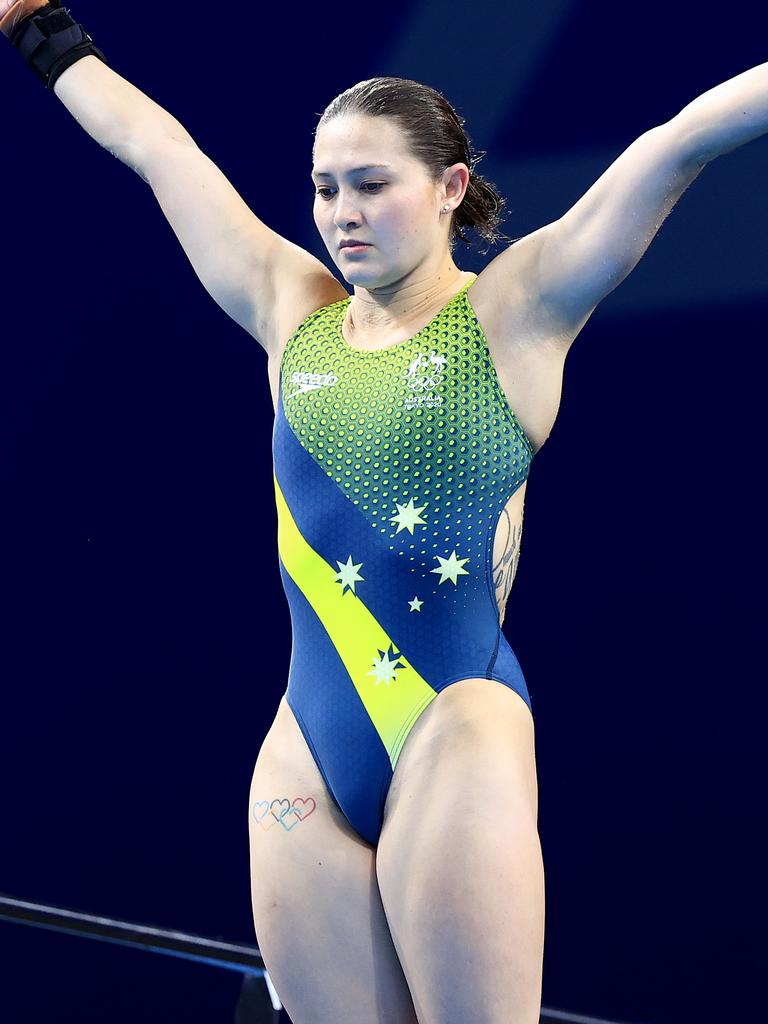
Then there were all the other troubles – physical and mental – that come with being an elite athlete.
“I have had multiple injuries for a long period of time and I did question whether or not it was worth it to keep going a few times in my career,” Wu said.
“In the last year I have had some ups and downs. I guess the mental challenge of juggling everything with life and diving. A few times I’ve doubted myself a little bit and questioned whether or not I would be able to do everything.
“But this opportunity in front of me, and to be able to compete in an Olympics, was something I’ve worked my whole life for, so just that continual trying to achieve my goals and remind myself why I’m doing it has been really important for me.”
The diminutive diver may only be 152cm tall but her standing as a veteran within the Australian Olympic team makes her one of the most respected members of the squad.
The youngest Australian diver to ever win an Olympic medal in Beijing, Wu went to Rio eight years later as the leader of the pack when she was anointed captain of Australia’s diving team. In Tokyo, she was again the person everybody else looked up to – at least figuratively, if not literally.
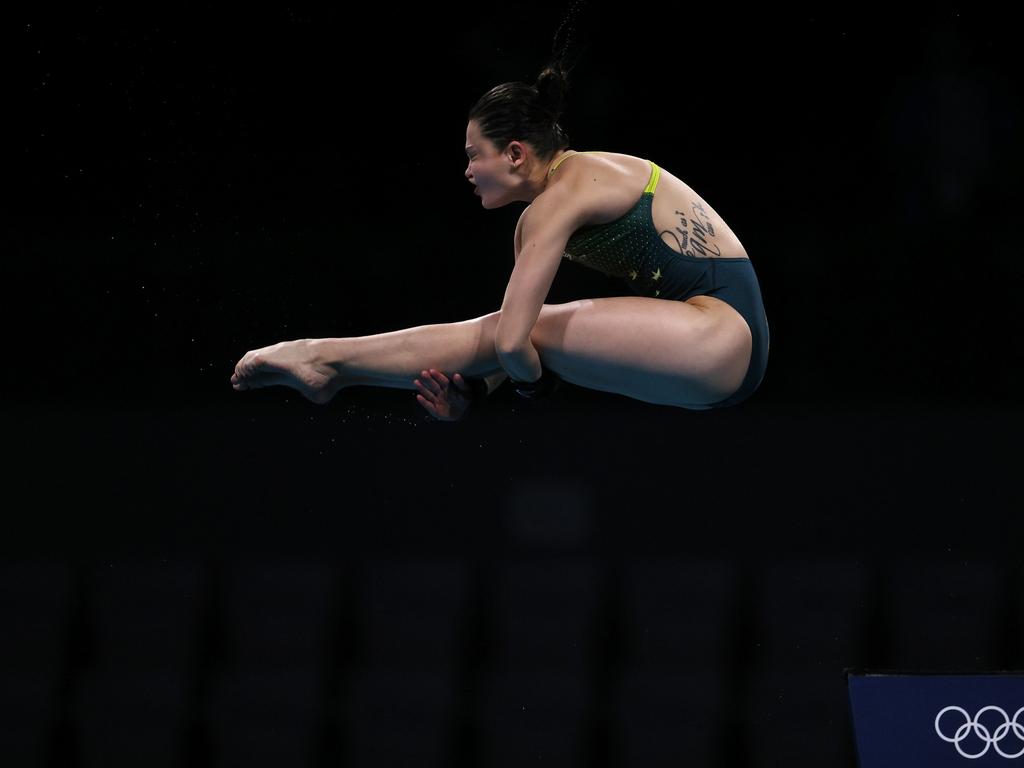
Embracing a very different role to the one she first held as the young gun of Australian diving, Wu relishes acting as a mentor for younger athletes coming through. But whether she’s ready to make the transition from competitor to full-time coach just yet remains to be seen.
“At the moment, I’m not really sure if I’ll continue diving or not. I’ve built up a lot of things in my life outside of diving, so I think that will keep me busy for now,” she said.
“I’m running businesses and I coach a younger squad of divers as well, a high-performance squad.
“I think it’s great for them to be able to have a coach that understands them and understands that it’s not always about the good stuff, about the medals. There’s a lot of challenges that go along with it.”




